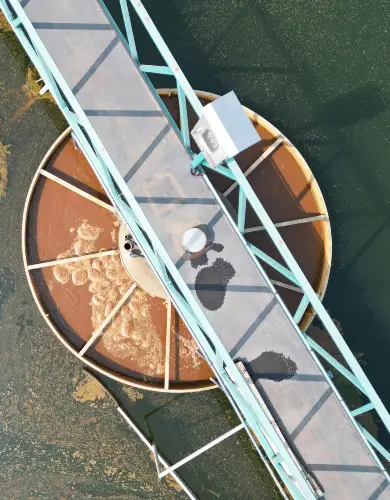Greywater systems – all you need to know.
Greywater is a type of wastewater that has a low level of contamination but is not suitable for human consumption. In this guide, we look at what greywater is, the different types of greywater systems and the benefits of using these systems.
What is greywater?
Greywater refers to a type of wastewater produced by domestic processes that has a low level of contamination. An example of greywater is the wastewater being drained from sinks or the used water that’s pumped out from a washing machine.
Greywater is not suitable for human consumption (referred to as potable water) but does not contain strong contamination, such as the water being flushed from a toilet. Greywater is safer to handle and easier to treat than the average sewage being produced by a property as it has reduced pathogen content.
Greywater can be safely used for non-human processes such as lawn sprinklers or irrigation systems. Greywater is particularly beneficial to plants as it contains nutrients that act as a fertiliser.
What is a greywater system?
Greywater systems are a recycling method where greywater produced in a property is reused in non-human processes. Greywater systems are becoming increasingly popular as environmentally-minded businesses look for solutions to reduce their water footprint and carbon emissions.
How does a greywater system work?
Greywater systems come in a lot of different shapes and sizes.
In residential settings, greywater designs can be straightforward. A laundry-to-landscape system takes the used water from a washing machine and pumps it into a large outside barrel that irrigates a nearby garden simply using gravity.
More complicated industrial systems use a series of pumps and filtration units that partially treat greywater so that it can be safely reused in toilets and other internal uses.
Are you looking to improve your business’s sustainable water consumption? Find out more about commercial rainwater harvesting systems today.
Do you need a septic tank for greywater?
Septic tanks are used in biological greywater systems to treat greywater that contains food debris anaerobically.
Septic tanks are not a requirement for simpler greywater systems that use alternative filtration methods.
How much does a greywater system cost?
Greywater systems come in lots of different varieties. The technology being used and the size of the system directly impact potential costs. Each property where a greywater system is being installed would require evaluation by an expert evaluation before a quote could be obtained.
Companies can apply for enhanced capital allowances (ECA) for investments made into greywater systems lowering the overall cost of installing a greywater system.
The most cost-effective way of installing a greywater system is incorporating one into the design stage of a new building to ensure there is space for required pumping and filtration systems.
Greywater systems can provide a positive return on investment to companies through reduced volumetric business water rates for companies such as hotels and leisure centres, which produce a lot of greywater in day-to-day processes.
What are the benefits of using a greywater system as a business?
Greywater systems in the right circumstances, have the benefits of:
- Reducing the carbon footprint of your business as less treated water is consumed.
- Helping to mitigate the UK’s growing water scarcity problem.
- Reducing business water rates as your business uses less water.
- Reducing the environmental impact of the water industry.
Water fitting regulations require that your local water company is informed before installation.
Switch business water suppliers today – Businesses looking to save money on water can save thousands with a hassle-free switch to another business water supplier.

